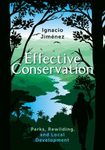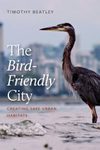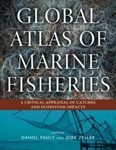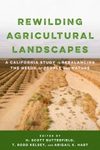By
Leon (NHBS Catalogue Editor)
3 Oct 2018
Written for Hardback

Krill is one of those enigmatic invertebrate groups that feeds whole ocean ecosystems but remains itself little known. Even to a biologist such as myself (who has studied fish for crying out loud!), these critters are largely a set of question marks. I mean they are crustaceans, swim in the sea, are numerous and... oh look, a blue whale!
Krill are so much more than just delectable food items for the largest filter feeders on the planet. Stephen Nicol is one of the world’s foremost krill scientists and based on his four decades studying them, he here tells the story of the Antarctic krill,
Euphausia superba, the largest and best-known species.
In a pithy book of less than 200 pages, Nicol describes what we know of their biology. Since studying anything in the Antarctic is exceedingly difficult and costly, we do not know that much compared to some of the more charismatic megafauna such as whales, seals, or penguins that live at the bottom of the planet. What we have learned so far reveals a fascinating animal that might be one of the most abundant multicellular animals on the planet (though I have heard that claimed of lanternfish, see
Deep-Sea Fishes) that migrates vast distances in the water column. We are not quite sure how old they get – one trick they have up one of their many sleeves is that they can grow smaller during food shortages, making size an unreliable measure of age. And during winter, young krill inhabit an upside-down winter wonderland just underneath the sea-ice, grazing on algae growing in the crevices of ice floes.
Krill hold an unusual position in the Antarctic food web, not quite at the bottom but somewhere in the middle, in what ecologists apparently call a wasp-waist ecosystem. This is to say that all energy that passes up the food chain has to pass through krill. Scientists and fishermen long thought that the wholesale slaughter and near extinction of whales might have resulted in a population explosion of krill, their main predator now having been removed. But, as also related in
Serendipity, ecosystems are complex and marine ones are perhaps even harder to gauge for us landlubbers. Instead, research suggests that whales are responsible for rapidly cycling iron through ocean ecosystems. This is a limiting nutrient for plankton, especially in the Antarctic, where the ice-smothered continent leaches virtually nothing into the ocean. Krill retain a lot of iron, but whales expel most of it when they eat krill. Removing whales from the ecosystem has reduced the flux of iron, inhibiting phytoplankton growth, leaving less food for krill. Removing whales from the ecosystem has thus inhibited phytoplankton growth, leaving less food for krill. As I already mentioned in my review of
Spying on Whales, whaling has in that sense impoverished the seas in ways we did not even imagine (see also
Whales, Whaling, and Ocean Ecosystems).
Luckily,
The Curious Life of Krill is far from a gee-whiz collection of facts as I enumerate above. Nicol’s writing on his favourite crustacean reveals much about the hardships of biological fieldwork, the technologies employed, and the care needed when interpreting and extrapolating data. Furthermore, after retiring in 2011, he enrolled in a master’s degree programme in creative writing, and I dare say that that shows. The book is very readable, and effortlessly mixes history and personal anecdotes in an amusing way that never comes across as forced. The chapters where this really shows is where he discusses fisheries management.
Next to his work as a scientist, Nicol has been involved with the international commission that manages Antarctic fisheries. Unbeknownst to many, the Antarctic has seen many failed attempts at developing an intensive krill fishery. Now, overfishing is an important topic, but it can make for turgid reading (see my review of
All the Boats on the Ocean). Not so Nicol; he provides a frankly fascinating bunch of chapters on these failed attempts and on the international commission that has brought all relevant countries to the table to make sure exploitation of this fishery proceeds in a sustainable manner. Remarkably, they have so far been successful, although one has to wonder if that has more to do with the difficulties of making this an economic success story. As of yet, there is little market for krill and krill products, and the efforts required to catch sufficient krill are incredibly costly in this hostile environment.
The Curious Life of Krill is a captivating little book, and also the only book for laymen (the only other recent book I'm aware of is the scholarly edited collection
Biology and Ecology of Antarctic Krill). Nicol does a superb job of distilling crustacean biology, hard-won personal experience, and interesting history into a book that never gets a chance to outstay its welcome. If you have even the slightest interest in books on oceanography, marine ecosystems, or the many interesting creatures that live here you should most certainly add this book to your reading list.













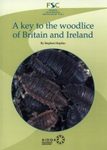
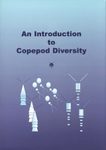

![Les Écrevisses de Bourgogne-Franche-Comté: Atlas de Bourgogne [Crayfish from Bourgogne-Franche-Comté: Atlas of Burgundy]](http://mediacdn.nhbs.com/jackets/jackets_resizer_medium/26/261873.jpg?height=150&width=109)







